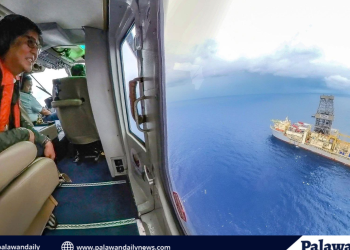The Government has taken an important step in confronting long-drawn-out issues brought about by the 50-year existence of the Communist Party of the Philippines bolstered by its militia, the New People’s Army and political arm, the National Democratic Front (CPPA-NPA-NDF). For decades, these communist-terrorist groups (CTG) have been fighting a Maoist-concept guerilla warfare with the primary aim of overthrowing the government. Through the years, new alliances are developed with strategies adapting to changes of the times including political overtone and advances in multimedia and digital technology. Several so-called development and community organizations have since joined the bandwagon with emerging leaders coming out of campuses and local communities—all believing in a communist revolution as a means of pursuing change and economic equality, based on the dogma of an all-knowing, all-wise regime. This has been a protracted and continuous effort of promoting their objectives through mass mobilization, military engagement, subversive political action, and international solidarity work (ISW) with several other organizations.
President Duterte issued Executive Order No. 70 in December 2018 establishing a whole-of-nation approach in ending local communist armed conflict through the creation of a national task force (NTF) that will take the lead in institutionalizing a national peace framework. As a matter of state principle and policy as mandated by the Constitution, the government shall maintain “peace and order, the protection of life, liberty, and property” and promote the general welfare. Consistent with the objectives of the Philippine Development Plan for 2017-2022, the attainment of inclusive and sustainable peace through peace-building initiatives is optimal in this presidential directive. The whole-of-nation approach as directed by the President is essential for this peace framework to become workable, effective and beneficial.
For several years, government efforts have been unhurried in terms of countering the institutional platforms created and built by the CTG, thus, creating a national and international portrayal of failed governance and leadership in many respects.
It is now the time for government and people to make calibrated steps to thwart this narrative of a failed ideology that cannot seem to work in this country. While the CPP-NPA-NDF had exhausted varied means of declaring one-sided reports with fabricated facts and figures portraying a negligent and abusive government and security forces to the international community, a consolidated blueprint based on truth and unbiased publicity is extremely necessary and no other sector of society is best to lead such strategy than the government itself. The President had made a calculated and strategic move in establishing this approach to a peace framework. It is in these times that the government needs to go offensive against subliminal mechanisms established by the CTG in the international arena.
An official report from the NTF, which is co-chaired by the National Security Adviser, has been submitted to the Philippine Permanent Mission to the United Nations in Geneva for its appropriate action during a recent trip of the NTF to Switzerland. Several legal steps and mechanisms need to be undertaken to formalize the government’s response and position within the human rights work streams of the United Nations, the European Parliament and several EU member states that may not have been fully made aware of the strategies employed by the CTG in obtaining international support, including financial sustenance unwittingly provided by the international community to front organizations of CTG, in the guise of development projects in the countryside. While some UN agencies, EU governments, and the EU Parliament itself “feel good” about sending financial support to community projects in southeast Asia, their vetting processes need to be scrutinized as they might have been indirectly supporting communist-terrorist underground activities in the region affecting the very people whose lives they supposedly seek to improve in the name of humanitarian action and development cooperation.
In the engagement of the NTF with the European Council in Brussels early this week, CTG strategies were exposed by the NTF and presented to the EU’s Counter Terrorism Coordinator, Gilles De Kerchove, who committed to look into the matter very seriously.
“We have discussed our respective policy and how we can try to develop a more intense cooperation. I promise to look into this more seriously and talk with our colleagues in the European Commission,” said De Kerchove in an interview.
In 2002, the United States and the EU had declared the CPP-NPA as a foreign terrorist organization. According to the Country Reports on Terrorism published by the U.S. Department of State in 2017, the CPP-NPA “primarily targets Philippine security forces, government officials, local infrastructure, and businesses that refuse to pay extortion, or revolutionary taxes.” The report also noted that the CPP-NPA has a history of attacking U.S. interests in the Philippines and “has continued to carry out killings, raids, kidnappings, acts of extortion, and other forms of violence primarily directed against Philippine security forces.” In 2017, President Duterte signed an executive proclamation also declaring the CPP-NPA as a terror organization using Republic Act 10168 or the Terrorism Financing Prevention and Suppression Act of 2012 as basis.
On the other hand, the European Commission had assured the NTF of a specific plan of action in response to the submitted reports on possible terrorism financing of Belgium and other EU members states in the Philippines.
“We will have an independent financial audit on this. You can be reassured that we will monitor the country’s expenditures and donors who may have given to the organizations for the same activity. We will share with you the outcome of the external audit,” said Gunnar Weigand, Managing Director of European External Action Service and European Commission South East Division of Development and Cooperation.
The NTF also met with the Belgian Ministry of Foreign Affairs who confirmed that their government has been supporting community work in the Philippines and had allocated 15 million euros for a period of 5 years (2017 to 2021), released at 3 million euros per year to several civil society organizations. The Belgian officials identified the organizations they support, which are currently operating in rural communities in Luzon, Visayas, and Mindanao. Coincidentally, the identified groups appeared in the list of front organizations of the CPP-NPA-NDF as disclosed by officials of the Armed Forces of the Philippines.
“We received information from the Belgian government that they are actually providing funds to these organizations in the Philippines through Belgian NGOs. They are giving 3 million euros every year for five years, totaling fifteen million euros. That’s close to 1 billion pesos,” said Gen. Antonio Parlade Jr., AFP Assistant Deputy Chief of Staff for Operations. “But we already have an idea where these funds are going. A list was provided by the Belgians and we realize that these groups are allies and front organizations of the CPP-NPA-NDF,” Parlade added.
With these first steps taken by the government, the country is on the right path of putting an end to this insurgency and, most importantly, making the Filipino public and the international community more aware of what is really going on in our communities. It took us 50 years to make this preliminary move of engaging the whole nation and while the armed forces still consider the CPP-NPA-NDF as a potent security threat due to its capacity to operate nationally and the ability to infiltrate government and private institutions, it cannot deny that they are struggling for survival. And Rodrigo Duterte, with his whole-of-nation approach, is determined to subjugate them. (H. Clavite/PIA)



















Discussion about this post